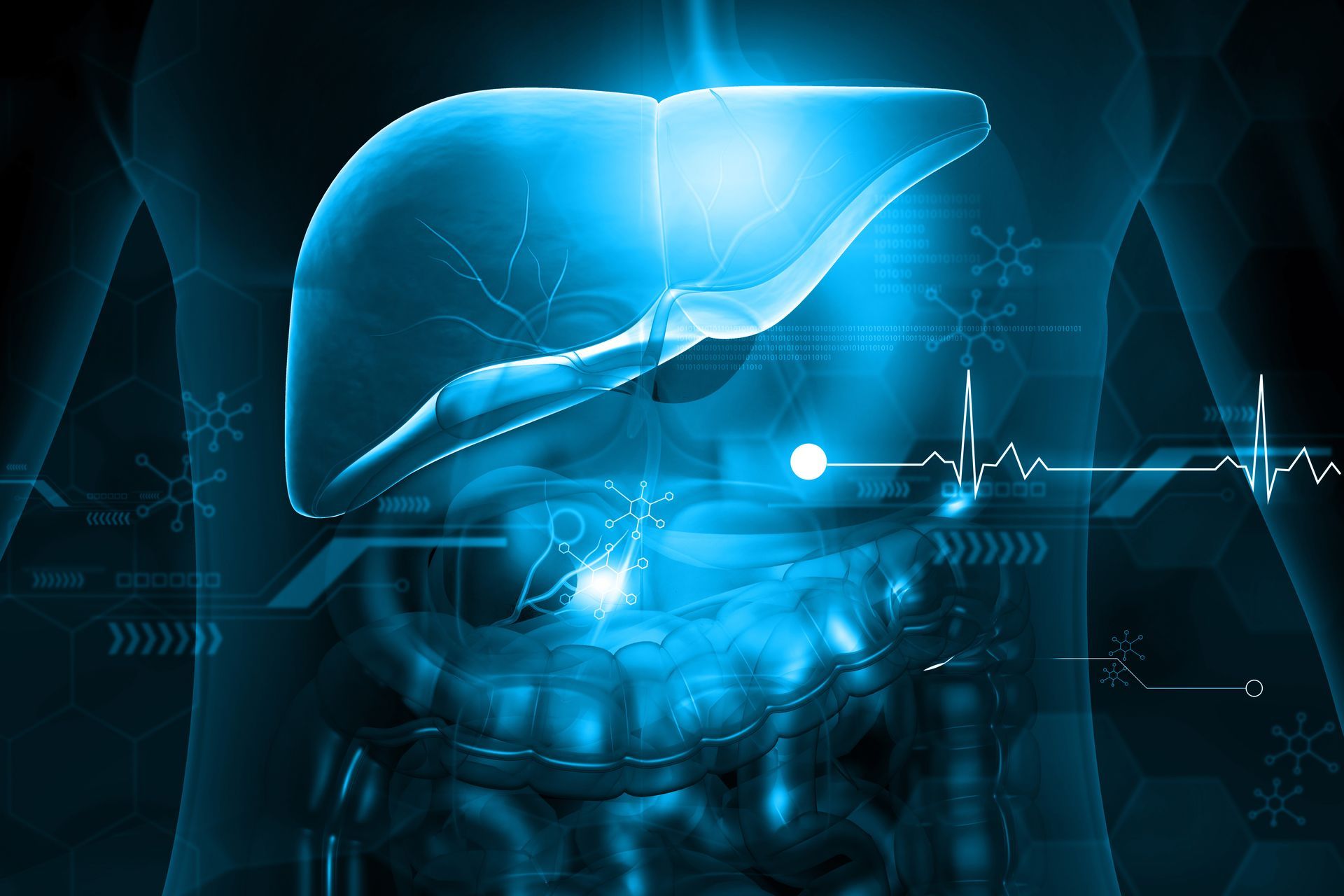rapid liver tumor screening center
Liver Institute Department - Pitié-Salpêtrière Hospital
HCC (hepatocellular carcinoma)
The most common liver cancer
Hepatocellular carcinoma (HCC) is a cancer that develops from hepatocytes in the liver. HCC is the most common liver cancer. It is the fifth leading cause of cancer worldwide and the third leading cause of cancer-related death, accounting for 500,000 to 1 million deaths annually. Unfortunately, the overall survival rate for patients with HCC is relatively low, mainly due to the often delayed diagnosis of the disease.
Survival is highly dependent on the stage at which the cancer is diagnosed. Currently, over 70% of HCC patients are diagnosed at an advanced stage, limiting curative treatment options. Cholangiocarcinoma, another type of liver cancer, also presents similar challenges. Most patients with cholangiocarcinoma are diagnosed at an advanced stage, requiring systemic therapy. Five-year survival rates vary considerably depending on the stage of the disease, but are generally low, ranging from 5% to 30%.
In the face of these challenges, improving early screening and diagnostic strategies is essential to increase the survival rates of patients with primary liver cancer. This is where the Rapid Screening Center (RSC) comes in. The RSC offers a rapid and accurate diagnostic process for liver lesions, allowing for appropriate management tailored to each patient's specific condition.
The Pitié-Salpêtrière Liver Institute is renowned for its highly specialized multidisciplinary team, comprised of hepatobiliary surgeons, hepatologist-oncologists, diagnostic and interventional radiologists, and pathologists. Patient pathways promoting rapid screening and treatment of patients with liver injury are already operational within the institute.
In addition, all necessary treatments, including the most sophisticated ones such as liver transplantation, hepatobiliary surgery, ablation, locoregional and systemic treatments, radiotherapy, as well as innovative therapeutic trials, are available on site.
It is important to emphasize that not all liver lesions identified incidentally during imaging studies are necessarily malignant. Some may be benign or have a low risk of malignancy. However, the discovery of a liver lesion often arouses anxiety, justifying the need for a rapid definitive diagnosis to provide appropriate management.
The Liver Institute at Pitié-Salpêtrière - Charles Foix University Hospitals has all the necessary resources, including endoscopy and nuclear radiology services, to ensure a comprehensive process of diagnosis and treatment of liver lesions.
The Liver Institute
Services
and doctors
highly specialized
How does a rapid screening test work?
The IDEC gathers the medical file, then organizes the additional examinations necessary to complete the file for the RCP
J 0
First contact between the patient or their doctor and the IDEC*
J 2
First consultation
Within 48 hours
J 3
Carrying out additional examinations**
J 5
Multidisciplinary consultation meeting
D 7 to D 10
Ad consultation with PSS
Treatment
*IDEC :
** Imaging (Wednesday, Thursday, Friday) Biology and Elastometry (HDJ Thursday) Biopsy (HDJ Thursday) Endoscopy (HDJ Thursday)

in radiology
interventional
Interventional radiology plays a very important role in the management of liver cancer, allowing minimally invasive diagnostic and therapeutic techniques.

liver transplant center
The Pitié-Salpêtrière Liver Institute is renowned for its highly specialized multidisciplinary team of hepatobiliary surgeons, hepatologists and gastroenterologists, diagnostic and interventional radiologists, medical-surgical resuscitation specialists, anesthesiologists and pathologists.



